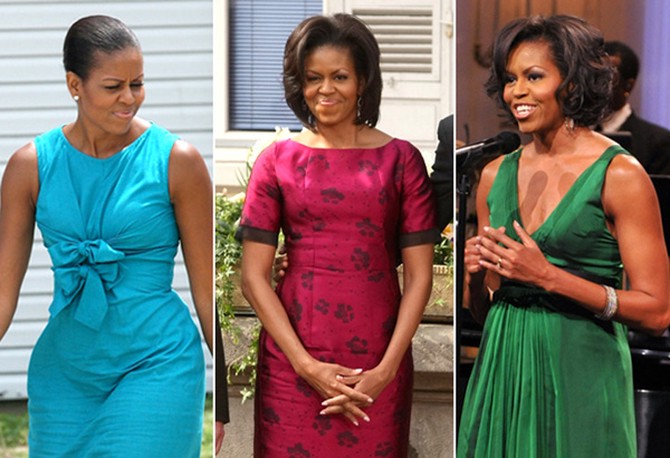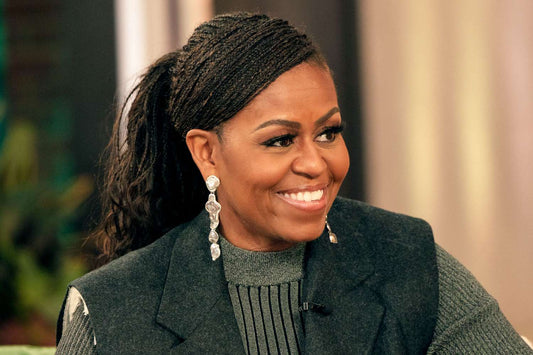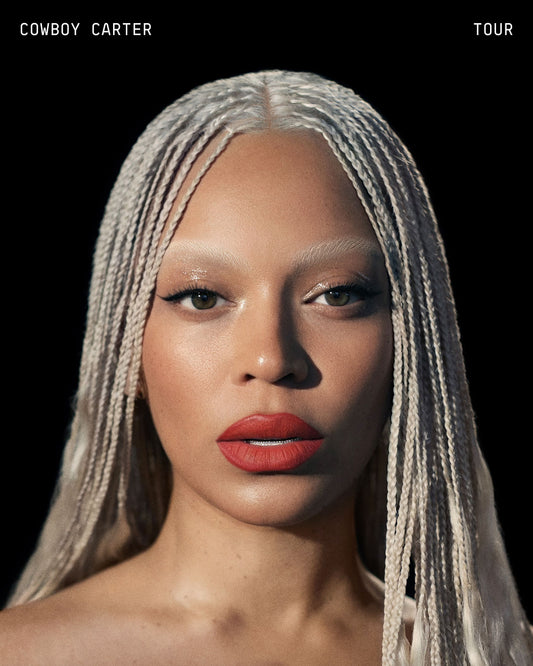It's 2018. I am in a soul sucking job at an e-commerce giant and feel uninspired. By life, work and domesticity. In hopes of getting me out of my funk, my husband surprises me with tickets to Michelle Obama's 'Becoming' book tour stop in Montreal. Even better, her moderator is another woman I admire and my name sake, Valerie Jarrett.

Michelle Obama, ‘Becoming, cover.
For the 8 years her husband was in office, Michelle Obama had redefined the role of First Lady. A previously ceremonial and background character role in government, Michelle eventually has higher ratings than her husband. Despite cruel newspaper cartoons depicting her as a militant black woman who is too comfortable and too confident under the spotlight, she takes on the role of First Lady and creates an avatar of empathy, strength and self-determination.

Michelle Obama, during Barack Obama’s presidency.
Eventually, the world starts to admire Michelle Obama's style and grace. Her style drew comparisons to another young First Lady, Jacqueline Kennedy, and the world becomes enamoured. For the world, Michelle's poise was a rewriting of how the world had come to view black women. For black women, she became a symbol of the many unwritten beauty and grooming rules black women have had to follow to succeed and excel professionally.

Condoleeza Rice, Political Scientist & former Secretary of State

Diane Abbott, Labour MP and former Home Secretary

Kamala Harris, former Vice President
Michelle, like many black women in leadership, never wore her natural hair out during her husband's presidency. Her signature style became floral tea dresses, kitten heels and a silk press with bumped ends.
She became the epitome of classic First Lady style, championing young American designers and embracing a demure, high-feminine look that disarmed the many who sought to use her confidence to detract from her husband's fitness for office and his overall presidency.
The Obamas are largely remembered for being so scandal free, that the only thing the only 'stain' on their presidential legacy, is Barack Obama wearing a tanned suit for his presidential portrait.

Barack Obama, August 28th, 2014
Black women have understood the language of uniforms, perhaps longer than their counterparts. They are often a reminder of our 'place in the world' and how the rules are so much more stricter for us.
Ask any successful black woman what unspoken rules around their grooming and they might tell you about;
- not wearing afro-centric hair styles the first 6 months in a role.
- not being too exuberant or eccentric with your styling until you pass probation.
- wearing hairstyles and wigs that are more Eurocentric during interviews to avoid discrimination.
We are constantly following rules about our appearance. And it takes us longer to find a safe space to express ourselves and our individuality in the workplace and the world at large. And it’s only when we find those safe spaces, that we can be our full selves.

Michelle Obama, Essence Magazine, November 2018
When asked about her hair, she voiced that “America was not ready for that” and that it would become politicised and become a “distraction”.
It came as no surprise to most black women, that the first time we saw Michelle Obama’s natural hair was after her husband’s presidency, while on holiday. And we were further unsurprised, when the first time we saw her in braids, was on her book tour.
 Michelle Obama with her stylist, Njeri Radway
Michelle Obama with her stylist, Njeri Radway
In an interview with her long term stylist Njeri Radway, she expressed that she had wanted to have braids for a long time and I imagine because of the many invented social constraints , she didn’t want to run the risk of giving something that is such a beautiful tradition for black women, as ammunition.

Michelle Obama, wearing tree braids in a low ponytail.
And she wasn’t wrong. Seeing Mrs Obama in braids was a signal to many of us, that the old conventions no longer applied. Her personal style could now be just that; personal.
We know what it’s like to be in a uniform. We know what it felt like to be judged. We know what it feels like to have your self-expression seen as an opportunity to judge your character and ability.
And we know what it looked like to come back to yourself and make no apologies for who you are.
The Braids Company was founded on the idea that all women deserve to be themselves, in all spaces, every time. And I say this knowing we’re not there yet. The Crown Act was only passed in California and as I write this, many anti-discrimination laws around identity, are being unwritten.
What remains is our resilience and our creativity.
The Braids Company is a safe space and a conduit to the creativity of black women. It is not the source. And we celebrate every moment and every time one of us regains their freedom and does so in style.




